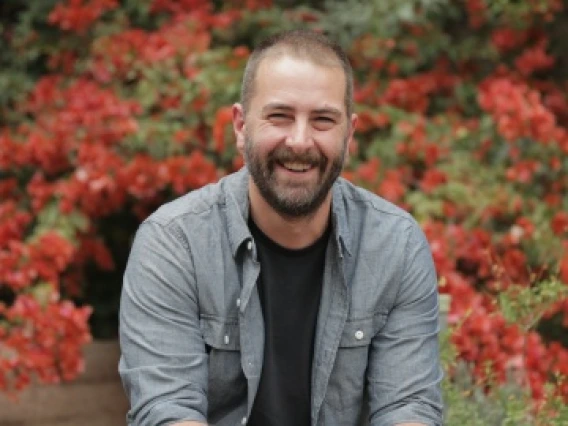Nov. 18, 2020
Donna Swaim, a revered teacher and mentor whose 50-year University of Arizona career stretched broadly across campus, from humanities to medicine to athletics, and included trips to dozens of countries for student study abroad, has passed away. She was 86.
From 1964 until her retirement in 2014, Swaim taught courses in English, humanities and medical humanities, and religious studies, served as a Faculty Fellow in the athletics department and Native American Student Affairs, and led students on 24 study abroad trips.
“Donna Swaim played a unique role as a citizen of the university, an important member of her department while also serving with her special touch as a Faculty Fellow in Athletics. She connected our student athletes with the larger university community as a beloved friend and mentor,” said Peter Likins, president of the university from 1997 to 2006.
College of Humanities Dean Alain-Philippe Durand said Swaim embodied the humanities, someone whose endless curiosity led her to eagerly embrace both world travel and small, personal interactions with people, especially her students.
“Donna Swaim is one of the most beloved teachers in the entire history of the University of Arizona. For 50 years, she opened her students’ minds to a bigger world through her humanities and religious studies classes, her service as a faculty fellow and leading life-changing study abroad trips. The best teachers leave a lasting impact on the lives of their students, and Dr. Swaim changed the lives of thousands,” Durand said. “She loved every one of her students and she remains an inspiration to all of us in the College of Humanities. We are profoundly thankful that our world has been shaped by her dedication, passion and love.”
In a 2012 interview with University Communications, Swaim said there weren’t enough hours in a day to take part in everything she’d like to at the university. But the students were always her favorite part. “I just love the students. I love the age of the students. I love experiencing change through them,” Swaim said.
Her students loved Swaim as well.
“Her class was the kind of experience students would hold with them forever,” said Melissa Vito, who took Swaim’s humanities course as an 18-year-old student and remembers the inspiration that pushed her to work harder, resulting in an A+ paper that Vito has kept ever since. “She completely motivated me and changed my life, really taught me to understand the value of the humanities.”
Later, in Vito’s career as a student affairs administrator, she saw Swaim’s impact on subsequent generations of students, both in the classroom and through the Faculty Fellows program.
“She was the one I would always recommend. Get a class with Donna Swaim, and so many did. My kids had her when they were in school,” said Vito, who retired in 2018 as Senior Vice President for Student Affairs, Enrollment and Academic Initiatives. “She could connect with everybody. She approached everything with a real curiosity and lack of judgement. She believed in everybody’s potential and as a result everybody wanted to live up to that.”
Karen Seat, head of the Department of Religious Studies and Classics, said Swaim had an enduring popularity among students and there was a rush of students every semester to sign up for her class.
“She always felt like she had something to learn from each and every student, which helped students realize their own value as contributors to the human story,” Seat said.
After the interdisciplinary humanities program that Swaim taught in for 35 years was dissolved, Swaim brought a course she’d designed called “Spirituality in the Arts” to the Religious Studies program.
“She had a very interdisciplinary course that brought in literature, philosophy, various classical texts, so she brought that over and gave it a religious studies focus, looking at religion and religious themes through art and literature,” Seat said. “She really personalized the course for students and she worked individually with every student on their projects and their writing. She helped students understand why the humanities mattered and it changed the way they thought about themselves and the world. She just had this incredible ability to bring that alive for students.”
That “Spirituality in the Arts” course, RELI 307, became not only a rite of passage for majors, but a popular course across campus, one that student-athletes who connected with Swaim through her role as a faculty fellow took as well. This year, in just one example of Swaim’s long-lasting connection with her students, she created a Facebook group, 307 Conversation, as a place for students and friends to discuss and reflect on humanity, sharing things like quotes, books and poems as a way to ease the sense of separation during the pandemic. A separate, private group called “Human Experiences amidst isolation” began as well.
Those groups and Swaim’s personal Facebook page have received an outpouring of personal and heartfelt sentiments from former students and friends.
“I’m not sure I’ve ever known someone who impacted as many lives as she did, and for such a diverse cross section of students. No matter where you were from, your background or life experiences, if you were a 4.0 student or struggling academically, she could connect with you, and she believed in you. It was very personal and unique for each student,” said Becky Bell, retired Associate Athletic Director for C.A.T.S. Life Skills. “She had designated ‘office hours,’ but they were really 24/7. If you needed something, Donna would be there for you. Even some of her smallest acts of kindness will be remembered forever.”
Swaim was the first faculty member to support the C.A.T.S. Life Skills program for student-athletes when it was formed in the early 1990s, said Rocky LaRose, retired Deputy Director of Athletics.
“She was a cheerleader for the program across campus and an essential part of its growth. But it was her strong connection and one-on-one interaction with student-athletes that really made a difference, not just in their academic world, but in their lives going forward,” she said.
Annie Grevers, then Chandler, says Swaim got to be a good friend, and her “Spirituality in the Arts” classmates gave it the nickname of Friendship 101. When Swaim retired in 2014, Grevers presented her with a surprise award during the end-of-year athletics banquet, a token of appreciation on behalf of the entire department in appreciation of Swaim’s dedication as a faculty fellow.
“Dr. Swaim helped athletes broaden their narrow views of success. She was interested in every facet of an athlete’s life. She never dodged tough topics, but lovingly walked with you through your thoughts. She asked great questions because she earnestly cared. Her warmth was felt the instant you walked into her office or her classroom. She was absolutely beloved,” Grevers said.
Swaim was born on a farm near Mitchell, Nebraska in 1934, the youngest of five siblings. In 1951, she met Bob Swaim when they were students at the University of Nebraska. The couple married in 1953 and moved to Tucson in 1958, spending a year abroad in London from 1961 to 1962, which inspired Swaim’s travel ambitions. She earned both her master’s degree and Ph.D. from the University of Arizona.
She led some of the university’s first study abroad trips, starting in 1979, before there was even a formal structure to do so. In total, she led students on 24 trips abroad, visiting a wide array of countries including England, France, Germany, Italy, Belgium, Spain, the Czech Republic, Hungary, Austria, Slovakia, Morocco, Tunisia, Egypt, South Africa, Lesotho, Zimbabwe, Senegal, Mali, Turkey, Georgia, Armenia, Romania, Moldova, Bosnia & Herzegovina, Iceland & the Faroe Islands, Norway, Sweden, Finland, Estonia, Lithuania, Latvia, Russia, Nicaragua, Guatemala, Nepal and Cambodia.
“They were making it up as they went, traveling all over the world,” Seat said. “One thing that religious studies offers, and the humanities in general, is being able to look at the world from other perspectives and transcend your own position in the world. Being immersed in another culture transforms one’s mindset more than any other learning. It can’t be replicated. She really wanted students to get outside the familiar and she really prioritized experiencing new cultures in person.”
Even after she retired, Swaim connected with students through scholarship funds established in her name.
Chelsea Forer, a 2019 graduate in Religious Studies, got her first chance to travel abroad, studying in Bhutan in 2017 as a recipient of the Donna Swaim International Award for Religious Studies.
“My trip to Bhutan expanded my boundaries to spaces I did not know possible,” Forer said. “When the opportunity arose to meet the woman behind the scholarship, I was immediately embraced both physically and intellectually in the vigor that so characterized Dr. Swaim. She was always so proud that students such as myself were experiencing places and cultures around the globe. I hope to continue to explore throughout my life, carrying her advice with me across the globe to celebrate her timeless influence.”
Swaim received the Five Star Faculty Award in 1985 and the Honors Lounge in the Student Union is named after her. In addition to her role in athletics, Swaim spent four years as a Faculty Fellow for Native American Student Affairs. In 1995, Dr. Andrew Weil, founder of Center for Integrative Medicine, hired her to facilitate a class on spirituality in medicine. From 1978 to 1986, she also served as a volunteer teacher at the state prison.
Swaim was passionate about having her students see people and cultures in the world were connected, Vito said. She remembers studying Salvador Dali’s painting “The Persistence of Memory” in Swaim’s class and when she finally got to see it in person Museum of Modern Art in New York, she texted Swaim.
“She really epitomized the interdisciplinary humanities program. Her academic area drew her into art, literature and architecture, so she had a lot of areas that connected her with others,” Vito said. “All of that really comes together through the humanities and she was always able to convey so that students could feel it and see it in a practical way and understand how it all comes together.”
“More than anybody I’ve ever known, I see her legacy in little and big ways across so many people’s lives,” Vito said.
She is survived by Bob Swaim, her husband of 67 years, children Phil Swaim and Katy Brown, grandchildren and great-grandchildren, and her best friend Honey Labradoodle Swaim.
Memorial donations can be made to the Donna Swaim International Award for Religious Studies.
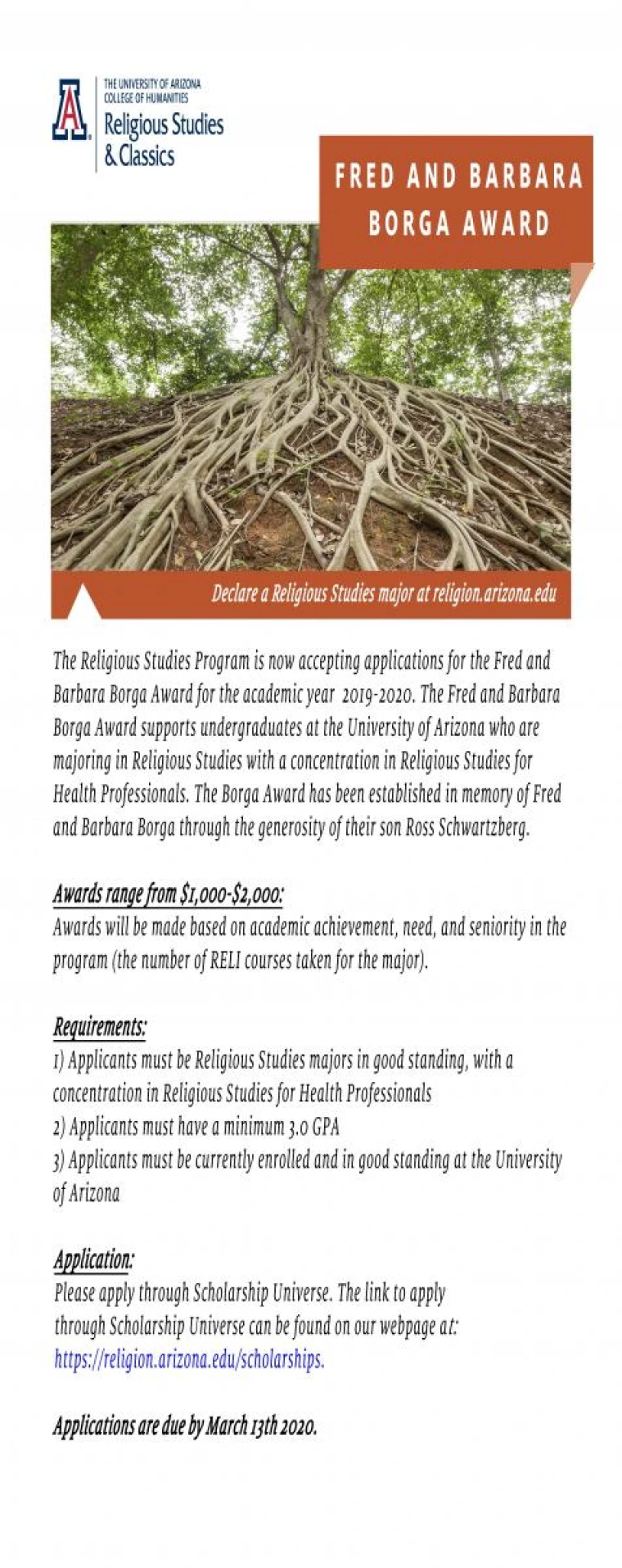



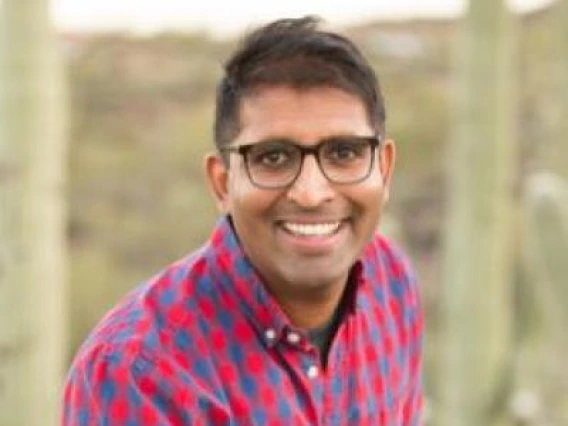
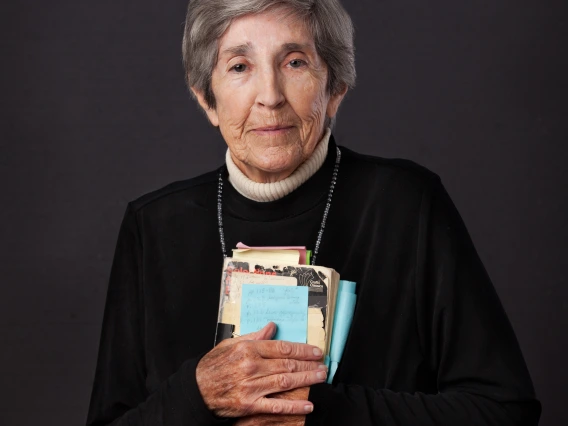
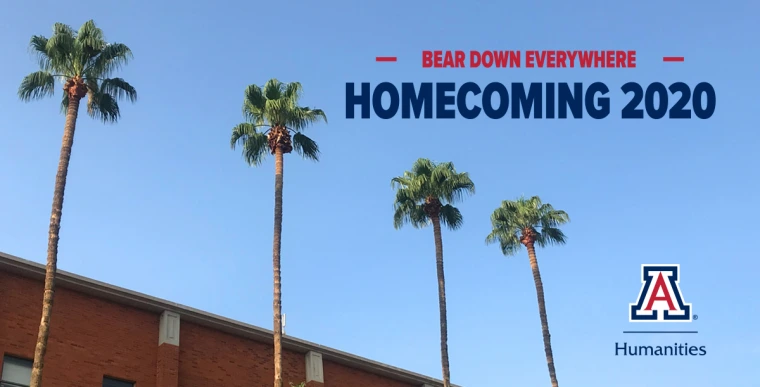
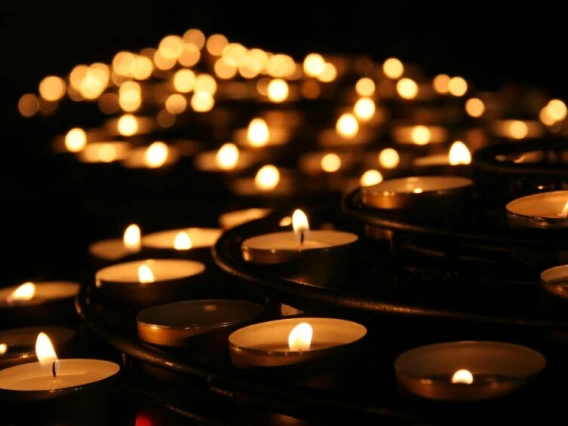
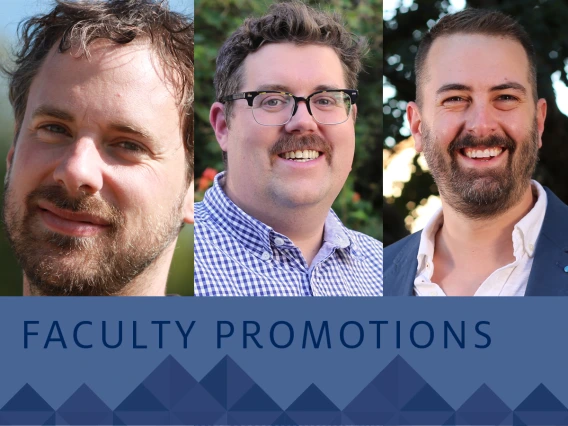
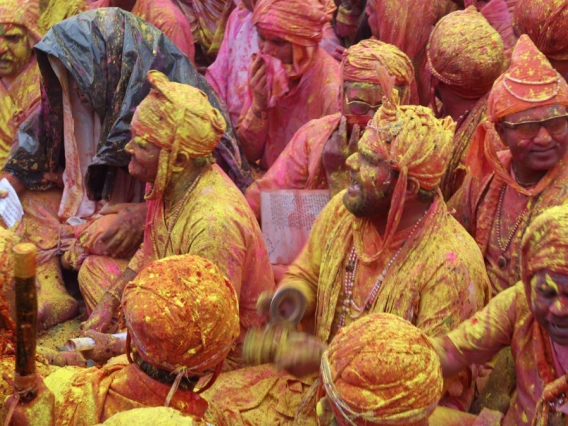
 These restrictions, however, have also been on my mind because they directly affect one of my major areas of research: large Hindu festivals. Hindu festivals have been one of my major areas of research, but this academic year I began a new project, to create a series of short documentary films. With a Teaching and Outreach Grant from the College of Humanities, I focused on four Hindu festivals—Durga Puja in Kolkata, Dasara in Mysuru, Bhagavathi Theyyam in Kuttikol, and Holi in Vrindavan—gathering and editing videos that could both be used in class and made available for free online to showcase these vibrant traditions.
These restrictions, however, have also been on my mind because they directly affect one of my major areas of research: large Hindu festivals. Hindu festivals have been one of my major areas of research, but this academic year I began a new project, to create a series of short documentary films. With a Teaching and Outreach Grant from the College of Humanities, I focused on four Hindu festivals—Durga Puja in Kolkata, Dasara in Mysuru, Bhagavathi Theyyam in Kuttikol, and Holi in Vrindavan—gathering and editing videos that could both be used in class and made available for free online to showcase these vibrant traditions. 